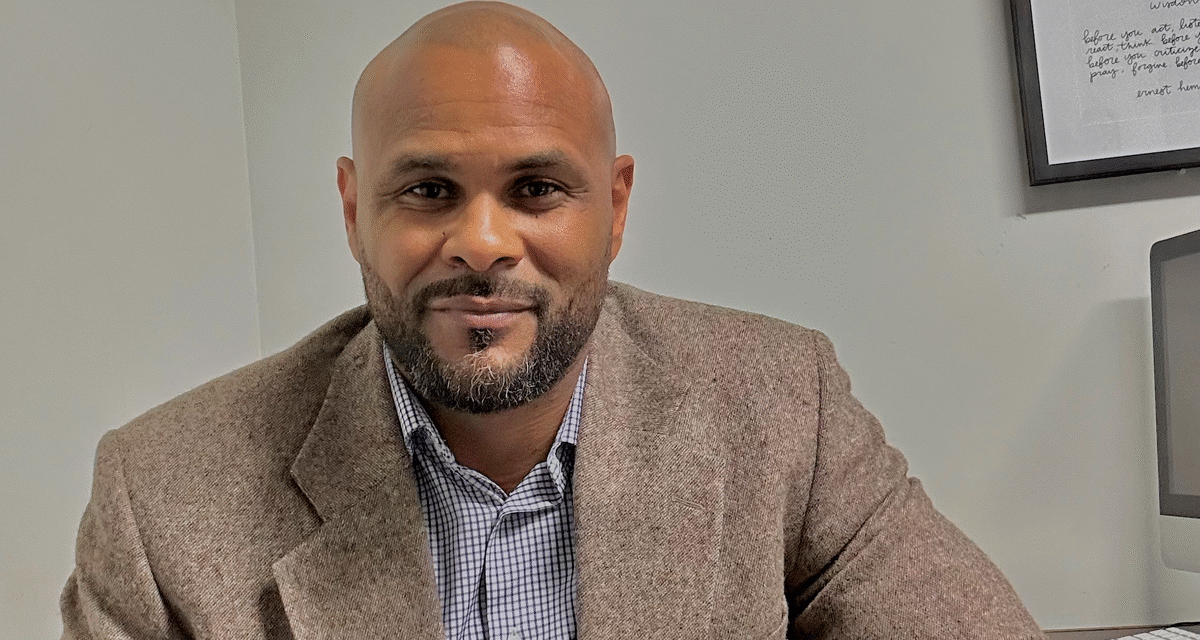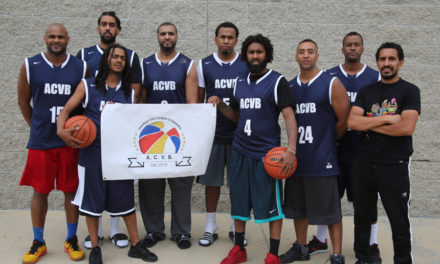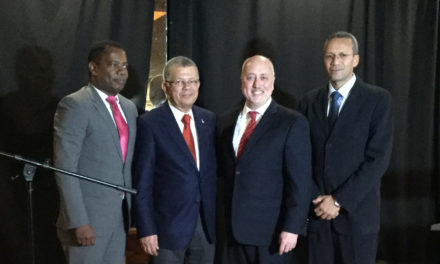CPCS Colleague Spotlight: Roxbury Defenders’ Investigator Cesaltino (Tino) Brazao, a person who leverages investigative skill, commitment to our mission, and racial and cultural awareness in pursuit of facts and justice.
By way of background, Tino is of Cape Verdean heritage.
- After his birth in Angola, Tino was raised in the capital city of Praia, located on the main island of Santiago in Cabo (Cape) Verde, an archipelago of 10 islands off the coast of West Africa.
- Cabo Verde was inhabited in the 15th century by Portuguese colonizers, who established themselves in Santiago’s Cidade Velha (“Old City”), where transatlantic slave trading occurred.
- In 1975, the country gained independence from Portugal, and is now known as one of Africa’s most developed and democratic countries.
- The country has a population of 600,000 people, but that number triples among those who left Cabo Verde to build families and seek education and better economic opportunities.
When Tino was 12, his mother brought her family to Brockton, Massachusetts, where there are 20,000 Cabo Verdeans in what is commonly referred to as the “11th island” of Cabo Verde.
- Across Massachusetts’s there are a total of 70,000 Cabo Verdeans living in this state.
- Tino reflects on the distinguishing role of the matriarch in Cabo Verdean families, given the tradition of men migrating to earn a living. He recalls his mother’s work ethic, sacrifice and resilience, despite limited English skills, as grounding for him and his six siblings.
- He credits his awareness of the Cabo Verdean diaspora as a key factor in leading him to study in Spain and Michigan, but also as a source of his ability to navigate “multiple worlds with understanding and humility,” while staying true to his identity.
- Tino also praises his community for its deep appreciation of diversity and adaptability, which has helped him build relationships and see people beyond their circumstances, skills that have made him the strong investigator CPCS counts on today.
Tino was drawn to investigative work through curiosity about people’s stories and the value he places on fairness.
- His earlier work experience has included assessing migrant families toward reunification with their children, which required learning about cultural values, lifestyles and family dynamics to identify risk factors and make life-changing recommendations.
- This work helped Tino see, embrace and weigh differences distinct from the structure and perception of American families, to reveal the normalcy in the lifestyles of people coming from Central American countries.
With CPCS, Tino has enjoyed being part of a mission-driven community that believes in fairness, justice and equity, and finds fulfillment in his role where truth, critical thinking and integrity matter. He loves being part of the Roxbury Defender’s Office, leveraging his cultural awareness and language skills in Portuguese, Kriolu, Spanish and English in a community of many Cabo Verdeans and Spanish speakers, alongside great colleagues and the leadership of Managing Director Lavinia Bullock and fellow Cabo Verdean and Attorney in Charge, Cristina Rodrigues.
Tino credits his success on persistence, attention to detail, and strong communication skills, and just as importantly the empathy he brings in understanding human behavior and the factors that shape it, which enable him to approach cases with both objectivity and compassion. Along with these essential traits, Tino credits his cultural awareness and appreciation of community needs to help him learn that people naturally cherish connection and certain level of comfortability and trust that has facilitated his career in this field. Tino cherishes the moments when he has uncovered key findings that have made a defense in one of our clients’ cases.
Tino’s CPCS highlight so far, other than working with dedicated colleagues, was on a very difficult Superior Court case involving a rape case, where the serious charges, combined with the advanced age of the client, might have led to our client spending the remainder of their life in prison. Tino’s contribution to the case was bringing forward the person’s good profile, their cultural values and how they were perceived within the family to show who this person really was and the unlikely possibility of culpability. The team secured a not guilty verdict after a long jury trial and the client was able to go home, and with this success, Tino again proved the need for deep understanding of the cultural dynamics along with leveraging factors under the law.
In working with our clients, Tino recognizes that his Cabo Verdean background and being a person of color has helped him connect with people from all walks of life, understanding what it means to feel unseen or misunderstood by systems that don’t always reflect or value our realities. His work demands a high level of independence, judgment and emotional intelligence, combining investigation with advocacy, similar to his prior work with refugees and migrants, where understanding the human context is as essential as the facts of a case. That awareness has helped him build trust and communicate in ways that make clients feel respected and heard. Every time Tino helps ensure that someone’s rights are protected or their story is fully understood, it reinforces the reason for his being part of our team.
Going into the future, Tino sees the challenges of the seriousness and complexity of the cases we deal with, along with high caseloads, limited resources, and the emotional weight of the work, but perceives those factors as opportunities to strengthen our systems and support one another. To our colleagues across the Commonwealth, Tino shared the following message:
“Our work matters deeply. Every effort, every investigation, every conversation contributes to a fairer system. What I have come to cherish the most is the weekly ‘crunch’ where the attorneys come together to brief challenging cases for strategies, leaning on each other for perspectives, a model to ensure that no stones are left uncovered. As we move through this time of growth and change, I hope we continue to center compassion, cultural understanding, and teamwork in everything we do.”
He closed by noting that we are fortunate to be able to help so many people in great need of assistance.









Опыт первого раза с агентством https://dosug-v-ufe.ru/